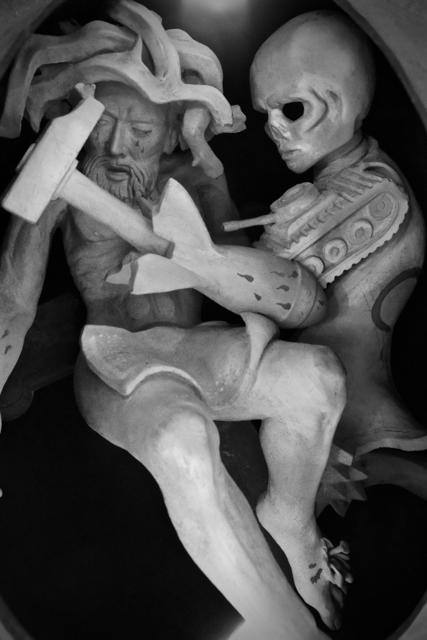I thought I had mentioned this on Targuman before, but apparently not. In his commentary on Ruth Campbell asserts:
It is inherent in biblical thought generally that a person’s actions and words offer a true picture of the person’s character. Hebrew stories do not have characters with hidden motives and concealed agendas, or if they do, the audience is explicitly told about it. 1Campbell, Edward F. Ruth. A New Translation with Introduction and Commentary. New York: The Anchor Bible; Doubleday, 1975.
Certainly biblical characters are often devious and do have agendas and perhaps Campbell is right in saying that when they do the audience is allowed into the conspiracy. But I am far from convinced that this is “generally” true or that the audience is always, explicitly told about the motivations all biblical characters. Unfortunately Campbell doesn’t offer a great amount of evidence. I am curious what others think of this.
I should add that I am one of the first to say that it is nigh on impossible to discern an author’s intent thus it seems to me to be even more foolhardy an effort to discern a character’s motivation and intent (unless that has been revealed to us by the narrator, of course). This all has come up in reference to Ruth 2 and questioning why it was that Boaz waited until he met Ruth in the fields to “remember” his role as a (but not “the”) redeemer.
- 1Campbell, Edward F. Ruth. A New Translation with Introduction and Commentary. New York: The Anchor Bible; Doubleday, 1975.





6 thoughts on “Campbell on the intent of characters in the Hebrew Bible”
I have just started teaching Ruth on Wednesday nights. If you will, give me a little insight that would improve my job as teacher. We are going through the OT/HB and are beginning Ruth. Thanks.
John, your request led to an entire post! Please see that for my reply.
I agree with your skepticism. The problem lies in the assumption that actions and words have a single meaning/interpretation. The ambiguity of signifiers like a character’s words and/or actions shifts some responsibility from the author to the reader in constructing meaning. I think problem is one of the significant contributing factors to the disagreement between Barr and Moberly on the truth(?)-telling serpent of Genesis 3. The text is inexplicit regarding the serpent’s motivations and certain clues in the text work in different directions.
Excellent point and a great example. Frankly all of Gen. 2-3 leaves open the question of the motives of “characters,” not least of whom is God. Why create the tree that they couldn’t eat? Why put the serpent there (or make him crafty)? And so on. Of course I think we can have some thoughtful answers to these questions, but *motivation* is a tricky thing…
And again, I concur. Just because motivation is a tricky thing does not mean there are no thoughtful ways of engaging the text. Of course, this places the interpreter in a more vulnerable situation. It is much safer to hide behind the scientism of “objective” rules.